Plex: 3 April 2024
Wandering Phase; Dancing With Mood; Plex Patterns; Trip to Balboa Park; Racism Begins At Home; Spring is busting out all over

The Biweekly Plex Dispatch is an inter-community newspaper published by Collective Sense Commons on first and third Wednesdays of each month. Price per issue: 1 USD, or your choice of amount (even zero).
In This Issue
- Wandering Phase (Kevin Jones)
- Dancing With Mood (Gil Friend)
- Biweekly Plex Patterns (Peter Kaminski and Charles Blass)
- Trip to Balboa Park (Jack Park and Peter Kaminski)
- Racism Begins At Home (Ken Homer)
- Spring is busting out all over! (Ken Homer)

Wandering Phase
by Kevin Jones
I’m talking to Dave Pollard, author of the Save the World newsletter, about reproducing our Act Local School.
Our market researcher with the Give2Invest Tool held a Business in Color event, sponsored by the CDC she works for, at a hip music venue.
She said she found a lot of people who’d like to try to set up the process where they become more powerful givers because the gift comes back to be given again. I am trying to figure out my outreach strategy with it. But mostly I am wandering.
My business has cut me loose to find the next thing, and to get out of the way of the machine and replicable process that’s there to be built when you stop me reinventing it, when they need to productize it. So I am wandering.
Wondering where my heart’s greatest joy meets the world’s greatest need.
I’m attending more online webinars on things I haven’t had time to pay attention to before.
Wandering takes discipline. It’s easy to fall into going somewhere when you should keep the goal and direction without explicit outline.This is just the wandering phase, next comes truffle hound phase, when I am sure there is something here. Then raise some money and hand it off, if history repeats itself.
I am going to travel a lot less and mostly focus within a morning’s drive of the farm.
charles blass
Dancing With Mood
by Gil Friend
Originally published at Dancing With Mood - A practical reflection
One of the most valuable things I’ve learned in the last ten years* has been about dancing with mood.
We inhabit moods—or perhaps they inhabit us. Moods are the orientation that we show up in “before our feet hit the floor in the morning,” as Bob Dunham puts it. An orientation to our lives, to our interpretation of our future and of the possibilities it holds for us.
They are deeply personal, rooted in the history of our lived experience. And at the same time they are not personal at all. We’re all at the mercy of the shared reflections of our culture and the mass mood of the times we inhabit. In the deepening recognition that we face an uncertain and unsettled future, do we do so in moods of resignation and despair? Resentment and rage? Anger and indignation? Or do we enter the unknown in moods of resolution, ambition, adventure, or even wonder? And sometimes serenity in the face of a future we can’t possibly predict? (As if we ever could.)
Moods are correlated with, or perhaps expressions of, the assessments and judgments we make. The assessments we make are, in turn, shaped by our moods. As are the observations we make. Loop de loop.
So is mood a trap? It can be—one that we live in all the time, as invisible to us as water to a fish.
But it need not be, since we can dance with our moods, and the moods of our time.
The dance begins by learning to observe moods—our own, the moods of other people, and even of groups and organizations—and to notice their workings, their shifts, their rhythms.
With practice, we can learn to cultivate mood, much as an athlete or musician cultivates her capacity to perform, or a gardener cultivates a patch of soil to provide the conditions for a plant to grow. With practice, I’m told, we can even learn to orchestrate mood, to affect the mood that people we love and the groups we work with inhabit, or that inhabits them. (In fact we do it all the time, just not consciously.) With practice, I imagine, we can even learn to maintain our own ground and not be swept along by the the mood of our colleagues, our loved ones, or even the mood of the mob.
How? As with many things, it begins by observing.
Resignation, for example, like any mood, is tangled with an assessment—in this case that “things are fkd and there’s nothing I or anyone can do to unfk them.” But noticing and examining the assessment(s) present with any mood is a first step toward shifting the mood. Is the assessment grounded—based on a realistic interpretation of the actual circumstances you’re encountering now? Or is it perhaps ungrounded—based on an inaccurate interpretation of current circumstances, or perhaps a ghost of an event long ago? (Or even an interpretation you “always” make, regardless of the circumstances?)
If the related/tangled assessments are ungrounded, well, that’s worth noticing too, since that opens the opportunity to form or choose a different interpretation, one that better reflects the circumstances, aspirations, and commitments of now. In fact just noticing this can shift a mood. Even one that feels normal or inescapable.
If the assessments are grounded, well, that’s worth noticing too…since that may disclose unseen opportunities. Are there actions I can take, moves I can make, that address the concerns disclosed by the assessment? That I’m willing to make? That I commit (to myself or a buddy) to make? That I actually do make…thereby changing the circumstances, and inviting a new assessment…and a different mood. In fact, I find, my mood can shift anywhere along that sequence of events, from “simply” identifying the mood to interrogating my assessments to actually acting on the underlying circumstances that elicited the assessment that’s tangled with the mood.
Learning to dance with mood has become a key element in my work with leaders, emerging leaders, and their teams—and in my own effectiveness, well being, and peace of mind in these wild and crazy times.
What does the dance of mood feel like in your life? How do you experience and cultivate the moods you inhabit—or that inhabit you?
(To be continued.)
---
* (with deep gratitude to Fernando Flores, Gloria Flores, B Rousse, and Chauncey Bell.)
charles blass
Biweekly Plex Patterns
A Plex Conversation
Charles Blass sat down with Peter Kaminski over videoconference on 2024-02-02 to talk about the patterns Pete enacts as he works on compiling and publishing the Biweekly Plex Dispatch. Together they hope to spread some of the practical wisdom Pete has developed.
Hello, world. Hello, Peter Kaminski.
Hey Charles. Hey world.
Happy 100th year of Douglas Engelbart’s arrival on Planet Earth, which prompted finally the spark of my reaching out and saying, “Let’s just do this, damn it. This Plex Patterns thing. It’s about time. In the name of all that is Doug and Good and Whole and Wise.”
So I am not trying for a whole lot of detail in terms of the specific tools and platforms and whatnot, although feel welcome just to weave that in as you like and as appropriate. I think we want to try to keep it more high level.
I’m interested in particular in, well, a few aspects.
The Plex as an institution is just great. It’s like awesome, and you rock. So I just want to be really clear about that.
And one kind of reference benchmark that I’ll just name is the cicolab newsletter, which is not necessarily a direct comparison with Plex, nor is it anything like what I am putting together in one group in particular, but kind of like looking out at multiple groups and communities, as you do with the Plex, to kind of get the rhythm and the flow around... you can call it beat reporting, you can call it stigmergy and a whole variety of things, peeragogy wrap, ethnography is a term some of us have come to use lately, one more that I like to use now is community gardening.
So with all that in mind, then I’m thinking in terms of templates and basically process flows, of patterns that can flow and float between and across around the ecosystem.
So that’s the lens, and those are the parts in particular I would love to hear, just like kind of the main steps, let’s say, on a weekly basis.
And then what is the kind of scaffolding infrastructure that you’ve obviously set up super well and you just got the flow and the rhythm. You need the rhythm. I’ll pass the mic to you now with the thought that for me, as I’m coming to focus on all this stuff more, it’s much more about the verbs than the nouns.
In other words, it’s not about the content and the products and the posts and the links, it’s actually about the process and the semi-sync in between. I mean, the sync in this case would be like you hit publish, right?
Then the async is the way in between and the semi-sync is like that whole - it’s all kind of dynamic, right?
We want to get the dynamic part of the dynamic knowledge repository and network improvement community.
So Peter Kaminski, I look forward to listening now and seeing what’s up with the Plex.
Thanks so much, Charles. That’s a great lead in.
One of the things about the Plex is it’s still kind of a work in progress. I’ve got high hopes for it, and I appreciate doing the Plex a lot, and everybody that contributes.
Charles, I love the way you contribute every issue, twice a month.
And that’s maybe a good place to start, the energy of people contributing and then reflecting back to me, hey, you’ve done a good job.
Even little emoji reactions where I post the announcement for the Plex really help keep me going.
The idea for the Plex was to do something that helped stitch communities together, to know more about communities, you know, over the transom or across the river or something like that.
You know, you and I have feet in many communities. For me, because I’m in so many places, it’s fairly partial in many places. For the communities I know about, I wish they had more journalism going on. Something where I could keep up more asynchronously.
And then especially for the people I know, and my friends, I know each of them is in a bunch of different communities that I actually don’t even know anything about.
So it would be lovely to know more about those communities.
The CICOLAB newsletter, that’s a good example of journalism. I feel like journalism is kind of underappreciated or people don’t understand or know what goes into it. They like journalism when they see it happening, but it’s not so much a conscious thing when they don’t see it happening.
Journalism is just kind of storytelling with an eye towards finding out a little bit of what’s going on and then communicating that to somebody who is prepared to listen, and thoughtful about listening, but doesn’t have some context that the journalist needs to convey over to them.
So the way the Plex works twice a month is that I send out an email to a few dozen folks who I’ve been keeping in touch with, who are correspondents of a kind is the way I think about it, and ask them, hey, what’s going on in your corner of the world and the communities that you’re a part of?
A story: early on I tried to automate that email going out. And because of the technical way I did it, a few people replied to it and were able to reply to the whole list, other than just me, which is something I didn’t want.
So I’ve gone into a strict thing where I have a list of the email addresses and names that I want to contact every other week. And I actually literally copy and paste each person’s name and address into a new individual email for each person, by hand.
And that might be another part of of the rhythm, because I go down the list and every once in a while somebody will be, you know, out for travel or somebody only contributes very rarely.
So each time, I pick and choose as I go down the list, is this the right time to email that person?
And that gives me a little bit of a state of mind about all the correspondents I’m talking to.
So, quick question. Not everyone gets the email every other week, is that right?
That’s right, yeah. And some people, it’s very rarely.
I know some people are super busy and they contribute a great thing like twice a year. So those people I usually don’t bug even.
But if I know that they might have some news every once in a while, you know, I’ll just ping them, kind of randomly. Other people get it every time.
So I send out emails, not very far in advance actually. Today I’ll be sending emails for next Wednesday, which is five days away I think. [ed. note, this week, it was more like two!]
Actually, I wish I did a better job of that interstitial stuff, the way you said it, the asynchronous things that happen. But because I’m busy, because everybody else is busy, it’s kind of gelled that I send that reminder email out four or five days in advance.
I feel like a thing that I would do if I had more bandwidth for Plex would be to spend more time in the interstitial two weeks between issues to talk to people about specific stories.
As an editorial / publisher kind of role, you want to try to keep things interesting for both the correspondents and for the readers.
So I don’t do a lot of it, but sometimes I suggest a theme or a question or something that I can pose to the correspondents. And I wish I did more of that, in a more structured way.
So one of the things like that that I’ve got going on right now is the question, “From where you sit, tell me a little bit about your community specifically, rather than what’s new. Just tell me about your community. And let me know of other communities that you know of, that Plex doesn’t know about yet.”
I started that for the last issue of Plex, and I got some interesting answers back, but I haven’t picked up and continued that thread.
So, we’re coming close to the next issue. I wish I had done kind of more homework and more prep over the past couple weeks to continue that conversation, but I’m pretty much going to have to skip this issue and continue that conversation publicly in the next issue, rather than this issue.
And so that’s an example of where I’ve got kind of an idea of something that I want to chew on a little bit as a publisher and with my correspondents that is taking longer than I’d like.
Which is fine, you know. I keep going.
One of my correspondents gave me a wonderful gift.
Plex is largely a labor of love. For the paying subscribers, THANK YOU. Your support is invaluable!
I’m also totally happy if you’re subscribing and not paying, I’m totally happy if you’re not subscribing. All of those are great.
But one of the realities is that I put a lot of effort into it, much more than is covered by the monthly income.
Because it’s kind of a spare time labor of love thing, I spend less time on it than I might otherwise, which is fine. But one of the outcomes of that, I’m a little bit of a perfectionist, unfortunately, and so I always think that Plex isn’t quite good enough. You know, I see all the ways that it could have been better.
So a couple of months ago, I was talking to one of the correspondents and I’m like, Plex is a failure.
It hasn’t grown fast enough, it doesn’t have enough variety, it doesn’t blah, blah, blah, etc., etc.
And my friend, my correspondent said, “Oh, Pete, take it easy, you’re being way too hard on yourself. It’s a success! It’s just that it’s a work in progress.”
And so since then, every week I think, it’s a work in progress, it’s getting better, rather than it sucks.
Yeah, plus one, or plus 111 or something on that. Yeah, it’s great.
It’s a model. That’s why I want to talk to you, I’ve been wanting to hear this for a long time. Been singing your praises, on and off, for years.
Thank you Charles, I appreciate it, you do a great job of cheerleading publicly and privately with me. And contributing!
As Plex readers know, Charles sends short videos with his phone from around town where he lives.
And so those are interstitial things that go into the Plex and make it more wonderful.
Speaking of which, one of the things that surprised me about Plex. I love images, I love photographs, and art. But I end up doing a lot of stuff in straight text.
So it kind of surprised me when I started adding images into the Plex. It made sense, you know. It’s kind of like a magazine or a newsletter, a newspaper. So it should have some art. I think that the art and the visuals really add to each issue.
Charles, you’re a big part of that, making sure that I have something beautiful or intriguing to add into the newsletter twice a month.
Just a quick side note there. It’s worth acknowledging that we have a lovely collaboration there, which is that you also do a wonderful job positioning these images very appropriately with regards to the text content.
And that just happened pretty spontaneously. We didn’t ever discuss it particularly, I just gave you free rein.
Then I’m doing this, I’m taking pictures. I mean, these are GIFs, sort of this live setting in the iPhone and they’re just looping.
And that’s important, the way that they loop.
But then I throw them into our chat channel for you along the way in the interstitial times, and then you can just rummage as you like.
That’s the whole thing there.
I wanted to come back to the question you had early on in this chat, “Tell me about the rhythm. Tell me about the interstitial stuff. Tell me about what goes on.”
The rhythm of Plex itself, I’ve heard this back from contributors that “you keeping this rhythm helps me keep a rhythm of having a practice of reflecting on my community” or my work or whatever.
I think that’s actually really huge.
Part of the reason I do the Plex is as kind of a regular activation energy for the rest of the communities, the people in the communities. I think that’s a wonderful thing.
I guess one of my continuing inquiries and maybe a thing that I hope for Plex for 2024 is communicating the importance of journalism, and self reflection, and outreach in different communities.
I think that’s really important and it gets underserved. What I care about is the journalism that a correspondent is doing for their community. Tell your community about itself, do self reflecting within your community.
But it’s hard to do that reflexively, internally. So if you tell somebody else, say, an aggregator of community journalism or even just a sister community - aiming your journalism out is a way to self-reflect and communicate internally.
So the thing I really hope for with Plex is that it gets that journalism going internally inside communities, and secondarily between communities.
If you’re doing journalism only within your community, you’re probably suboptimizing. You’re not telling the story as well as you could even to your own community.
That’s a thing that I’m trying to figure out how to articulate to other people. I feel like I can talk much better about that now than I could have a year ago.
Thank you for the Plex. It’s a beautiful gift, a generous labor of love. Thanks again.
Thank you. I appreciate that. You’ve been super helpful with Plex, Charles. You’re a big part of it.
charles blass
Trip to Balboa Park
by Jack Park and Peter Kaminski
Linda, Jack, Johanne, and Pete met up a couple of weeks ago at San Diego's Balboa Park, to see the seasonal cherry blossoms at the Japanese Friendship Garden and to ride the miniature train. Much fun was had! Here are a few of the highlights.

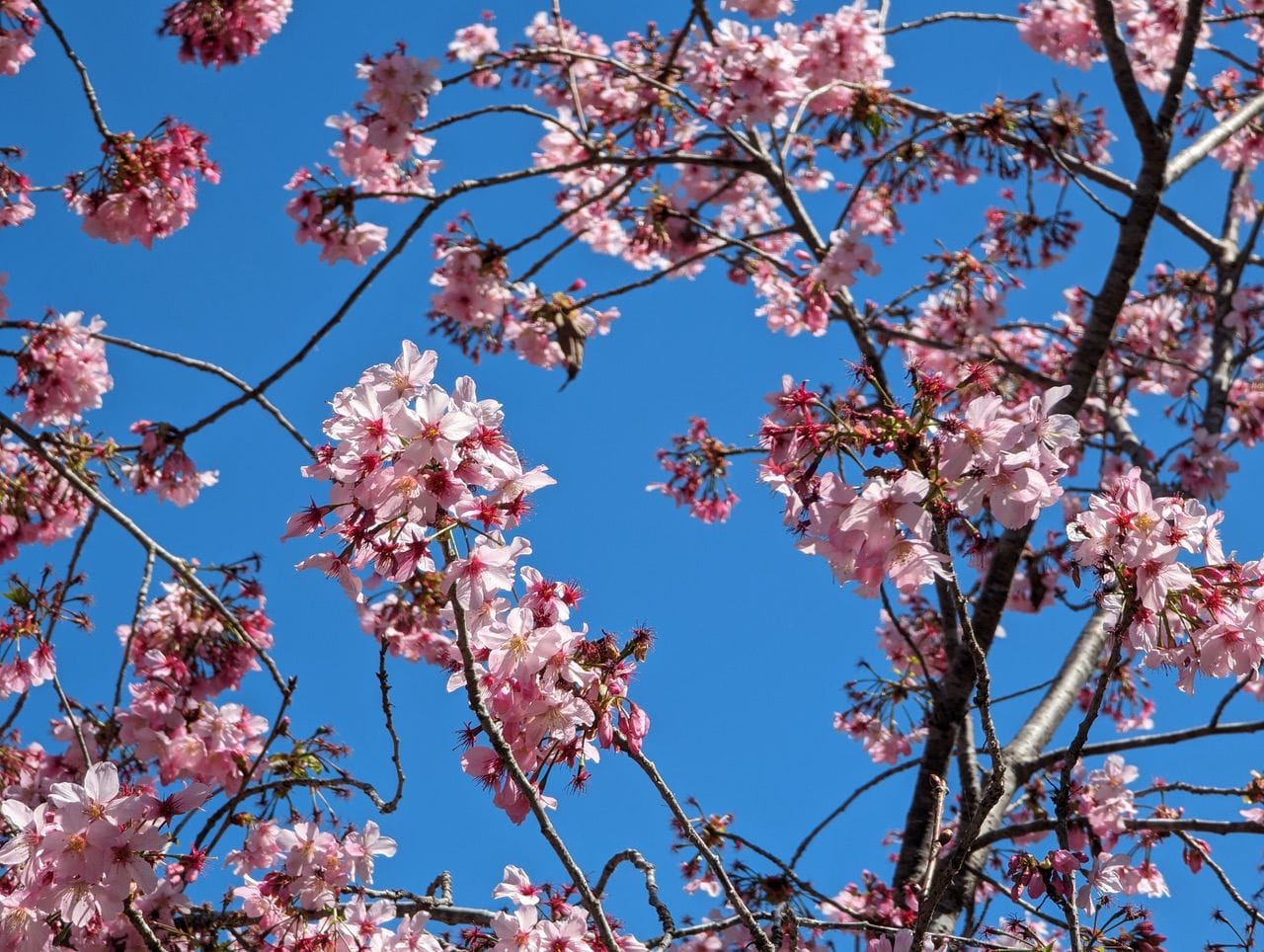
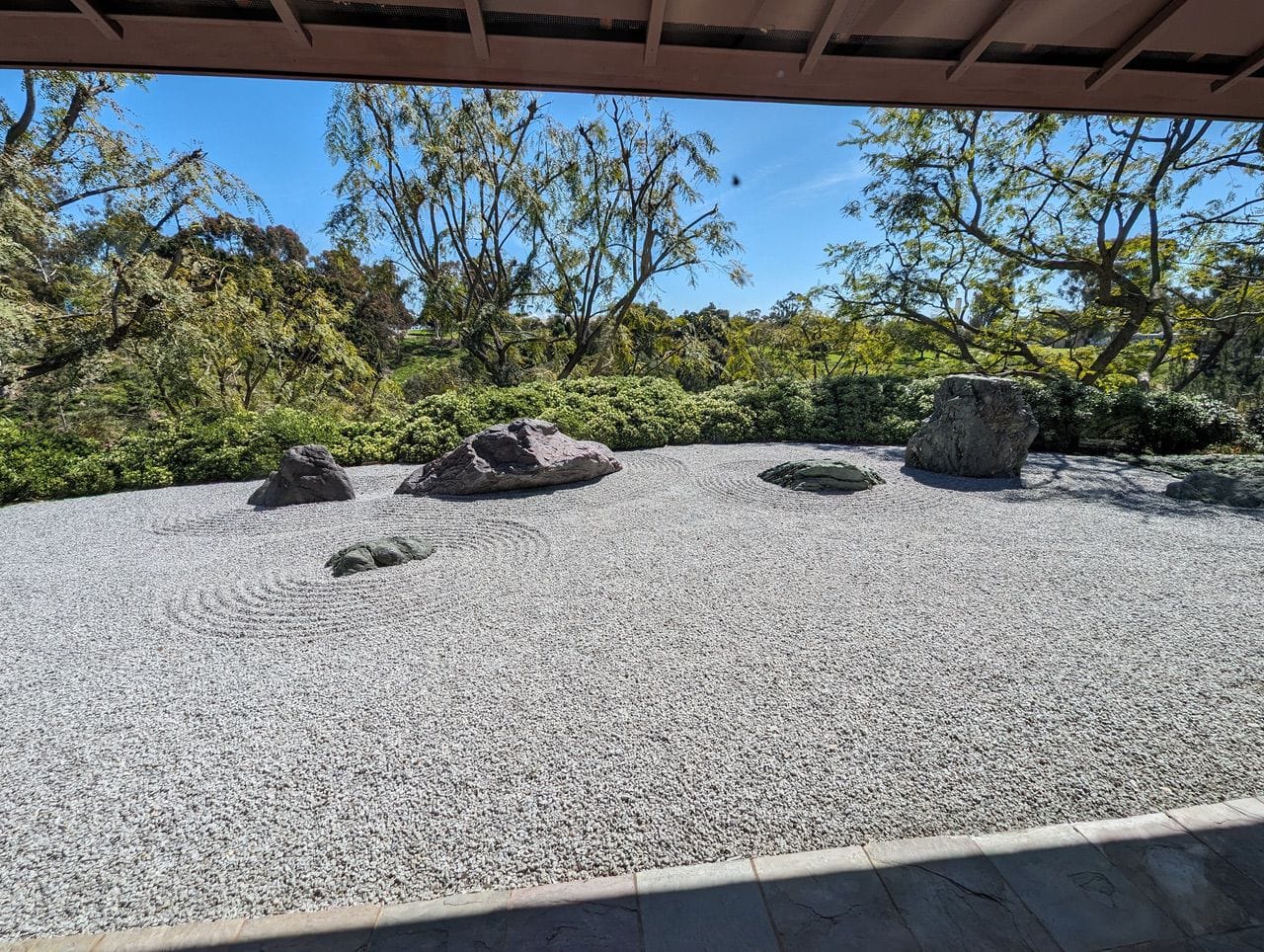
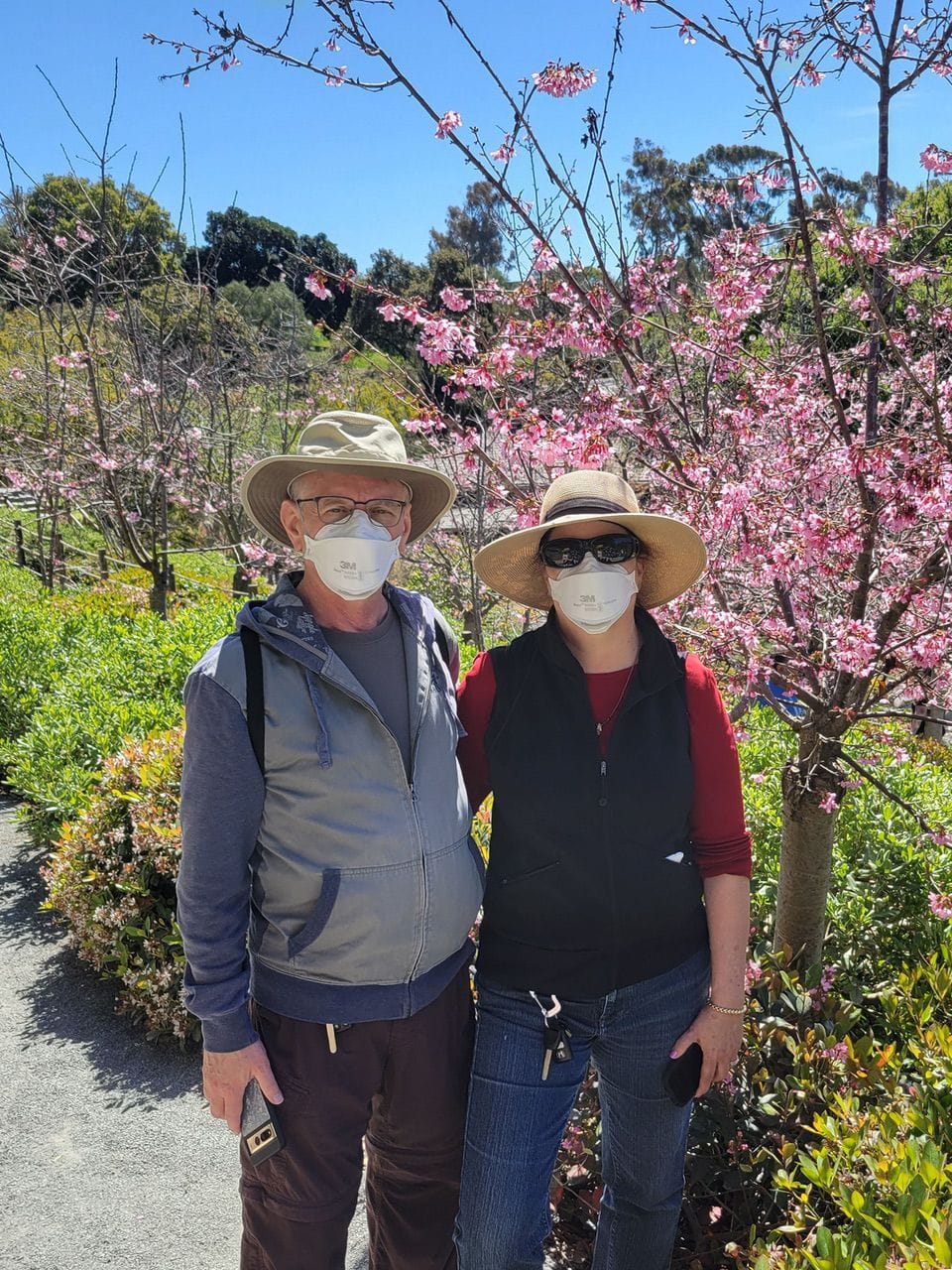
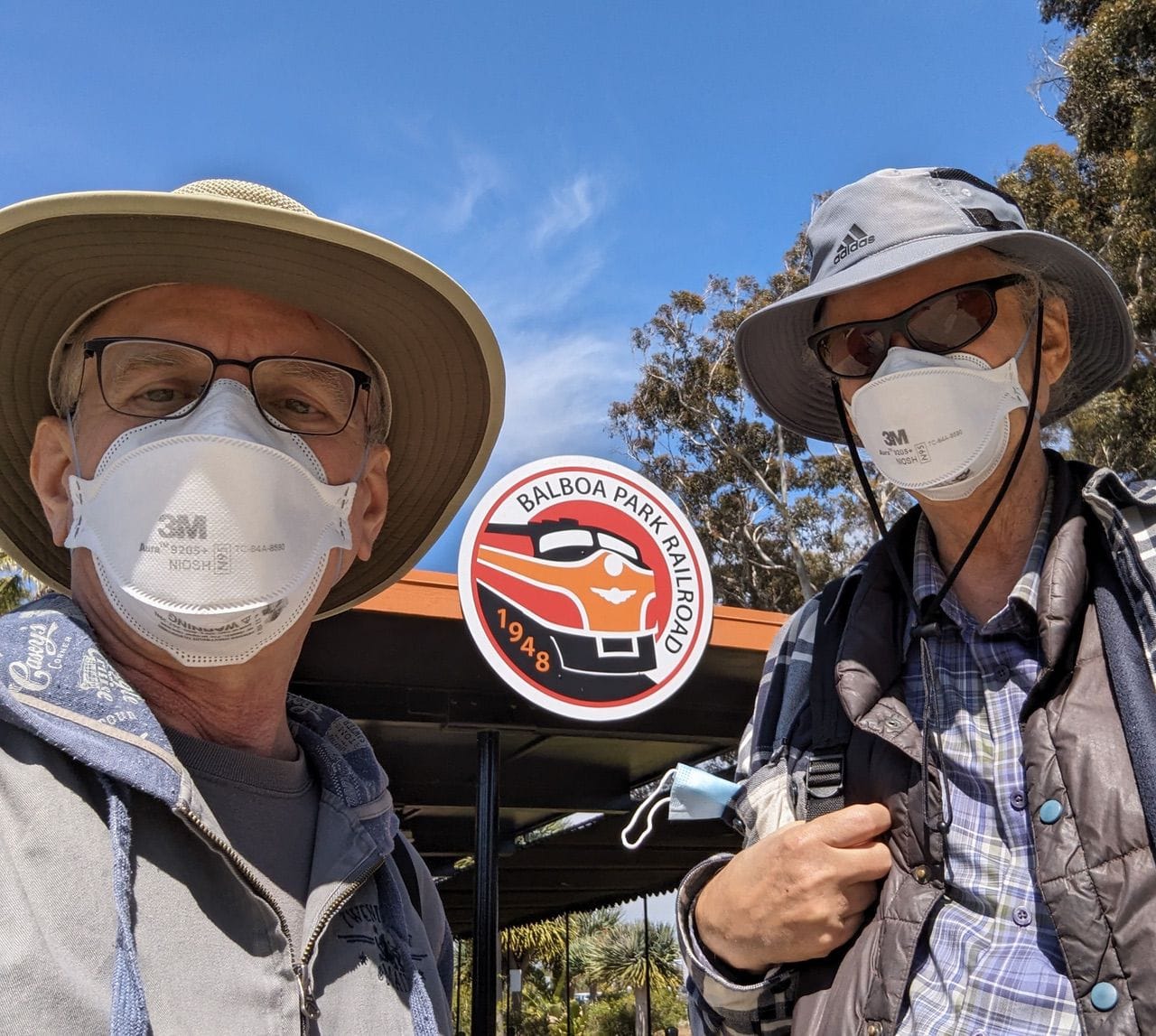

Racism Begins At Home
by Ken Homer
The racism in my house growing up
Was not particularly overt
But it was definitely there
Although my father pretty much
Eschewed religion–Don’t fall for that
Jesus crap–he believed that Black
People bore the mark of Cain
I suspect that was a lesson learned
In his early childhood something he
Absorbed before he was capable
Of critically examining what his elders
Were teaching him about the world
Just as I was incapable of questioning
The racism he passed along to me
I simply adopted his views as my own
The only Black person I was exposed to
As a young child was my aunt and
Uncle’s housekeeper – Daisy
Who was always kind to me
Daisy made the most amazing
Chocolate chip cookies
Served warm from the oven
With a large glass of milk
I liked Daisy a lot
She had a great laugh
And she knew how to talk to children
I couldn’t figure out how to
Reconcile my father’s view of Black
People with my experience of Daisy
When I tried to talk with him about it
He would tell me that you could
Sometimes find individual Black people
Who were okay but as a race
Black people were not to be trusted
I internalized my dad’s fear of Black
People at a very early age
Whenever we’d go into New York City
I would worry that the car would break
Down in a Black neighborhood and
We’d be exposed to horrible dangers
My dad would toss out The N-word
Now and then as the Civil Rights
Movement was gaining momentum
Nearly always conjoined with Goddamn
I knew it was a word of rare power
I could sense the hatred it transmitted
The absolute disgust that it conveyed
My dad’s racism came to the fore
Whenever race riots erupted
Which happened a lot in the ‘60s
He was incensed when Tommie Smith
And John Carlos raised their fists in the
Black Power Salute in the ‘68 Olympics
He taught me to shoot when I was 7
Just in case “they” came for us
He even bought me my own rifle
(I soon became an expert marksman)
Shooting bottles was one thing
But shooting a human being
Was something else entirely
I’m grateful I was never
Tested in that regard
My father was the manager
Of a department store
He hired several Black people
And he treated them well
He never showed overt signs of racism
He laughed and joked with them
He promoted them when
They proved competent
A flawed and deeply wounded man
My father passed along to me
Many of the conflicting lessons he
Had inherited from his parents and from
The times and culture in which he lived
The impacts of his racism have mostly
Faded from my life but they’re still
Not completely eradicated
I don’t know that they ever will be
Ken Homer • March 2024
charles blass
Spring is busting out all over!
by Ken Homer

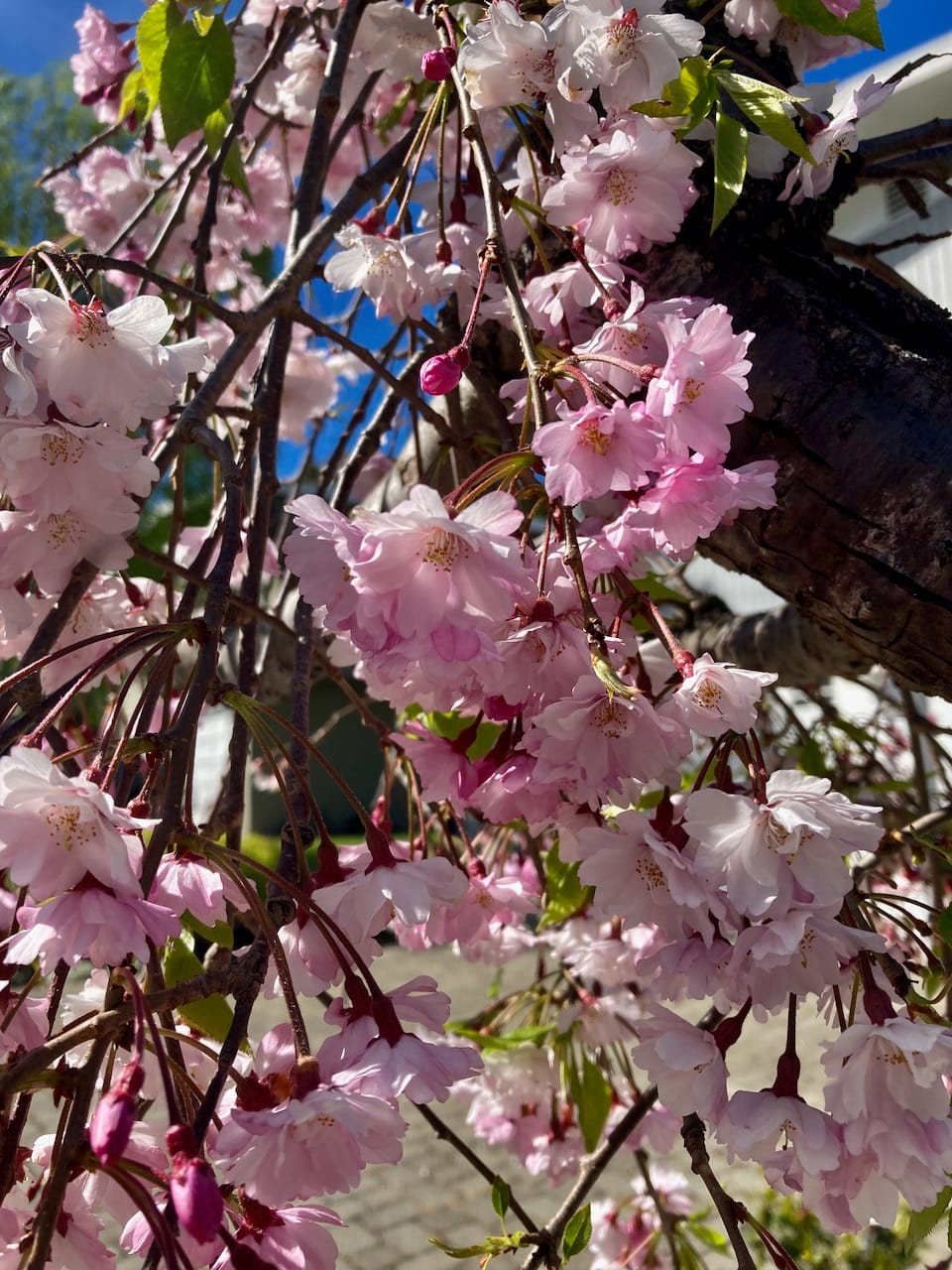
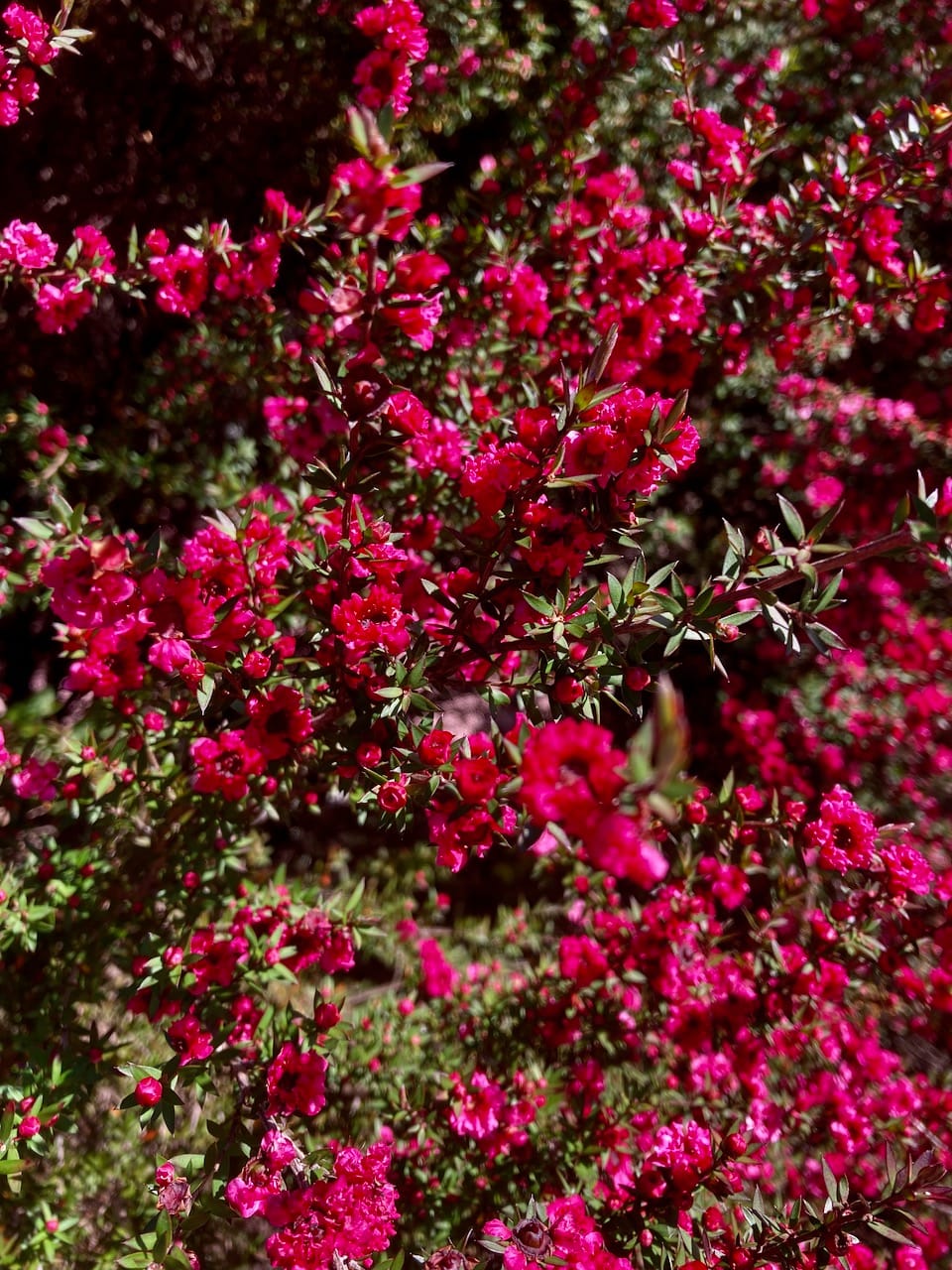
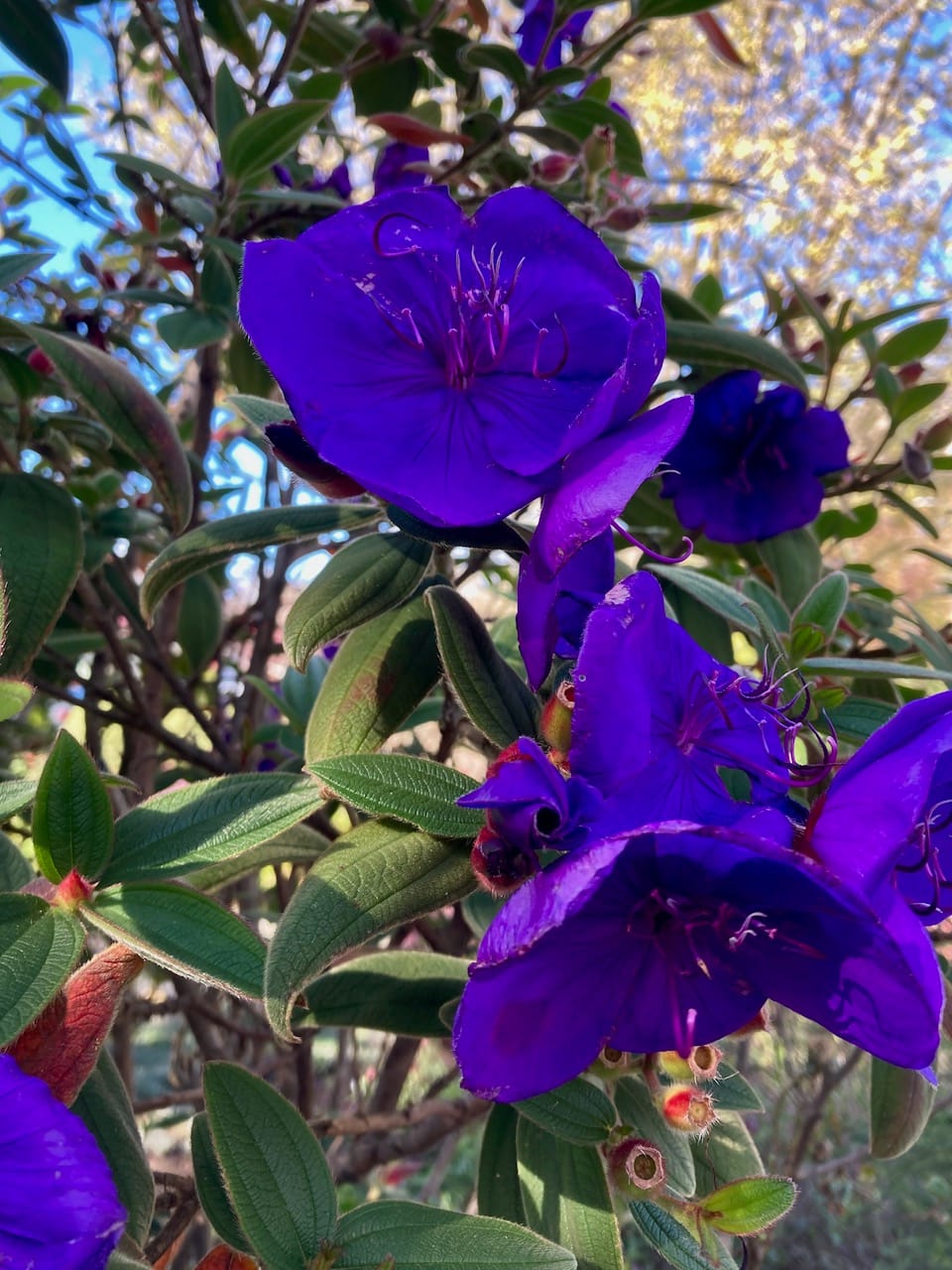
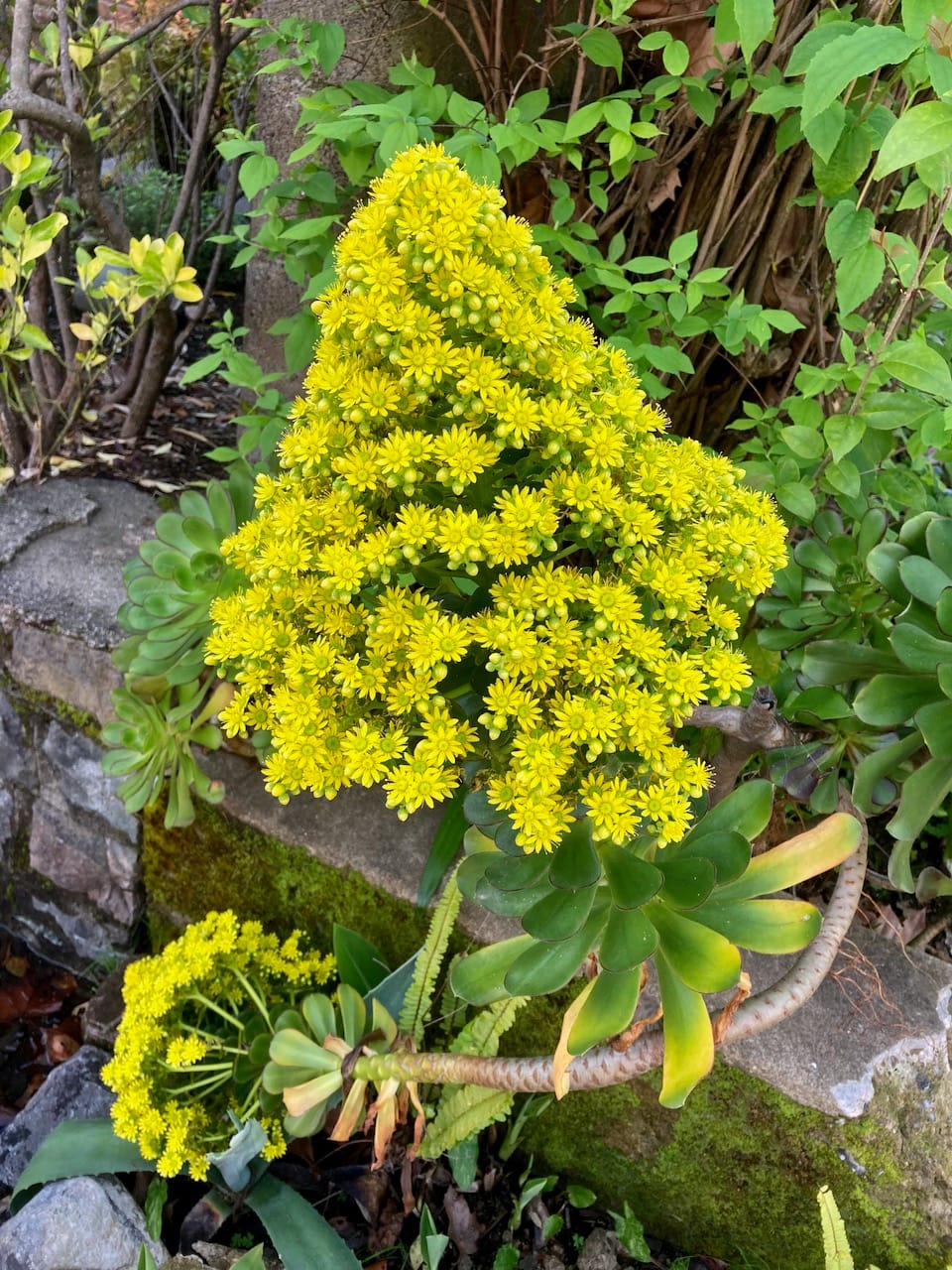
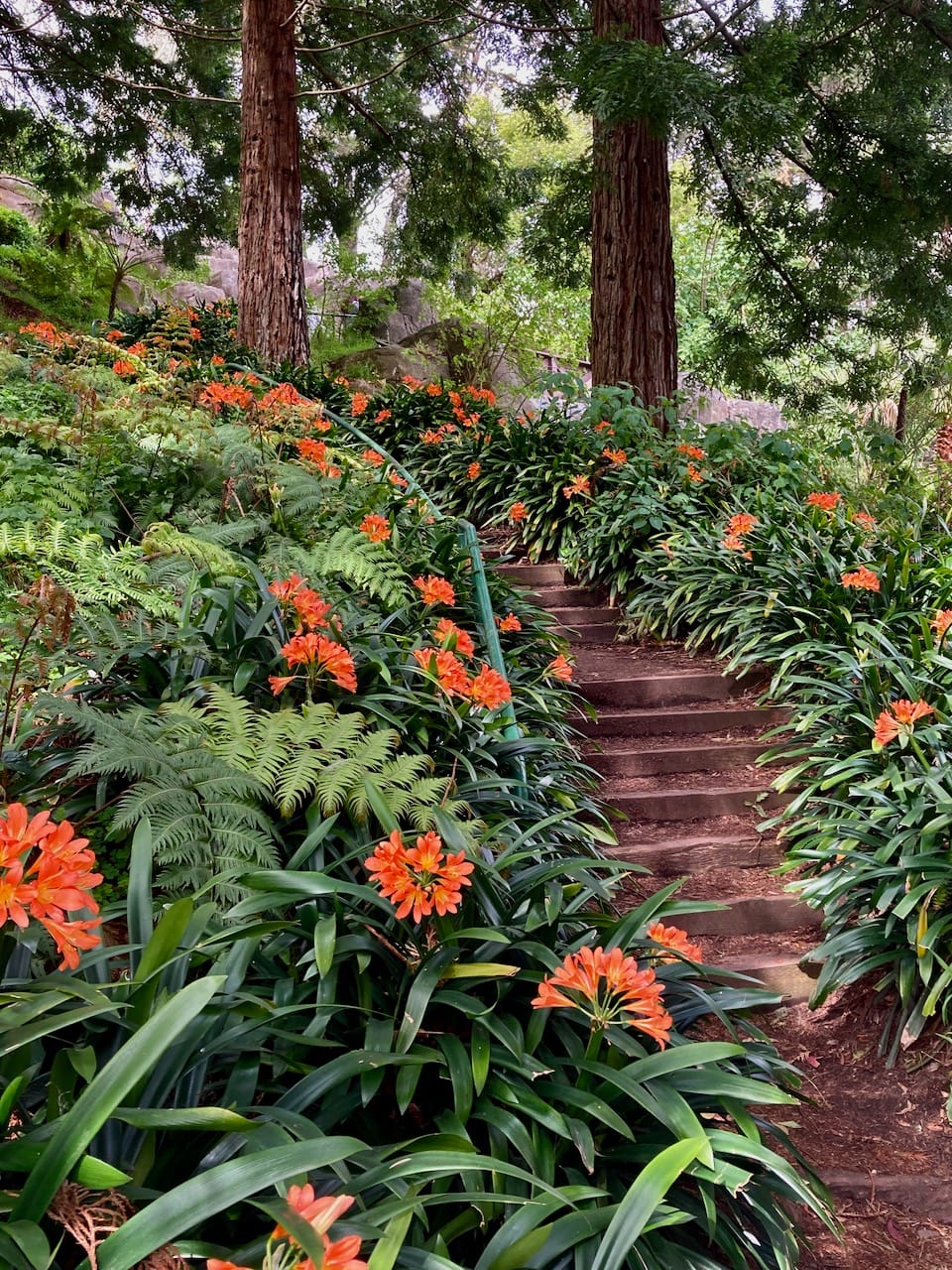
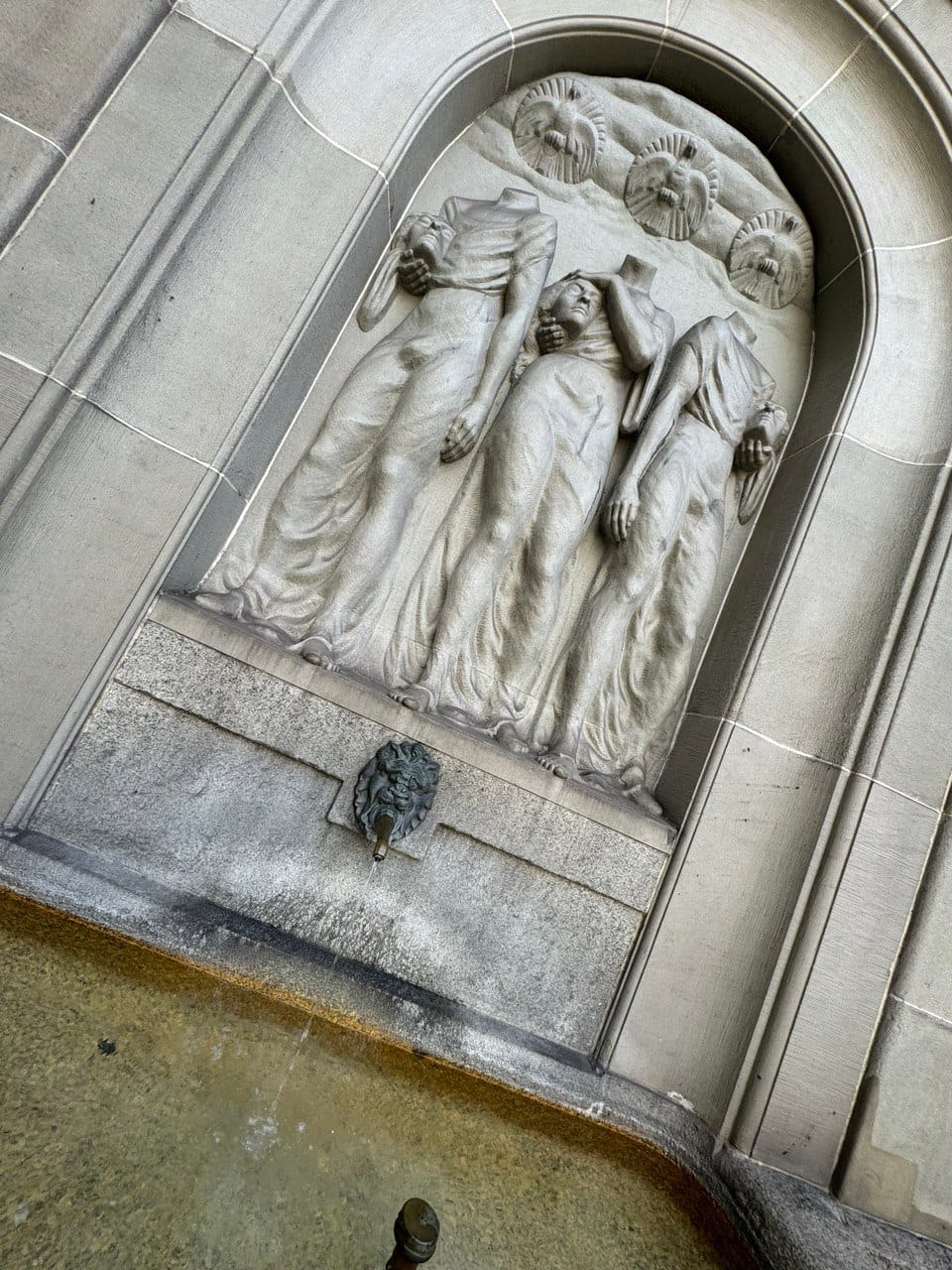
Thank you for reading! The next edition will be published on 17 April 2024. Email Pete with suggested submissions.
Grateful appreciation and many thanks to Charles Blass, Gil Friend, Ken Homer, Kevin Jones, and Jack Park for their kind contributions to this issue.